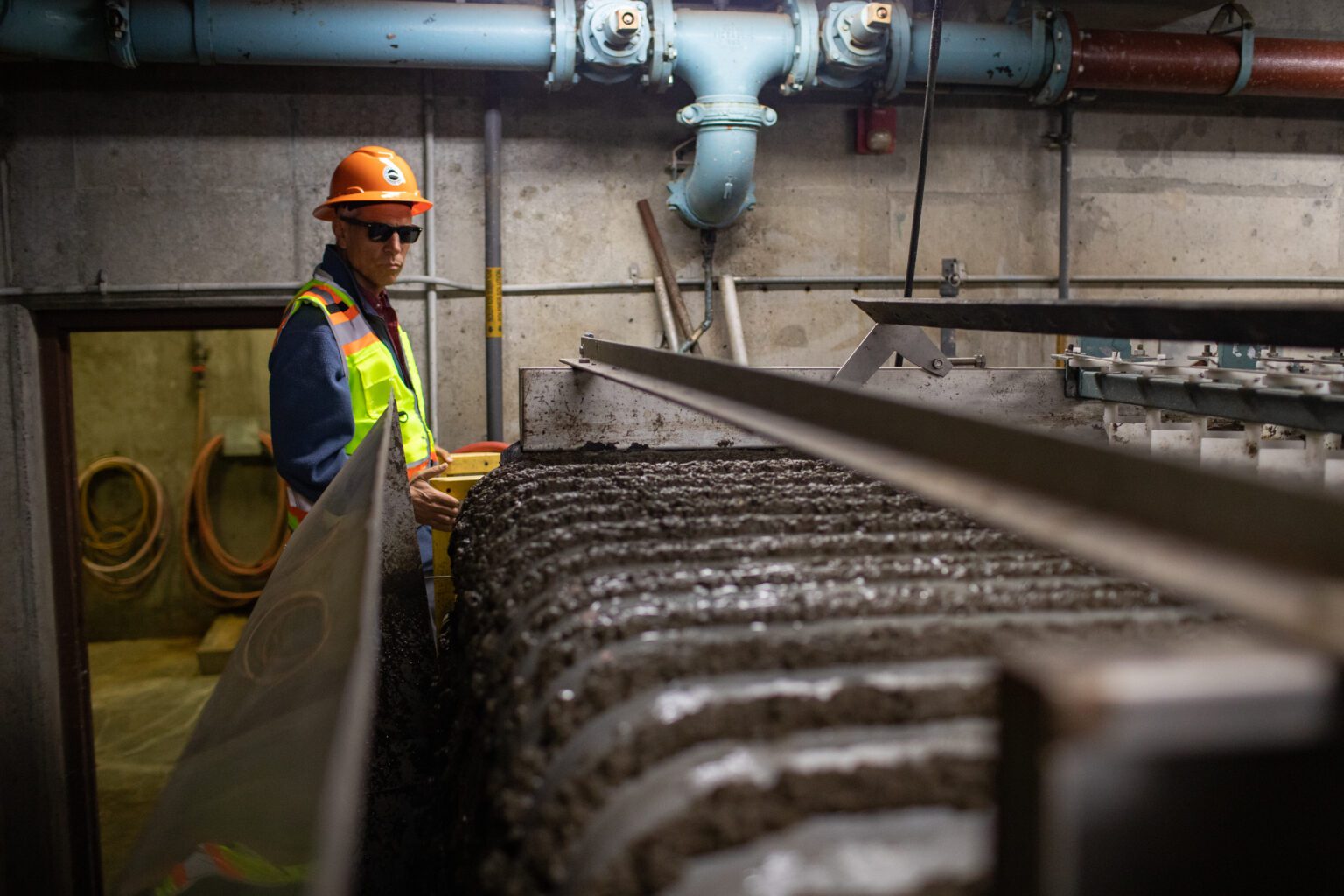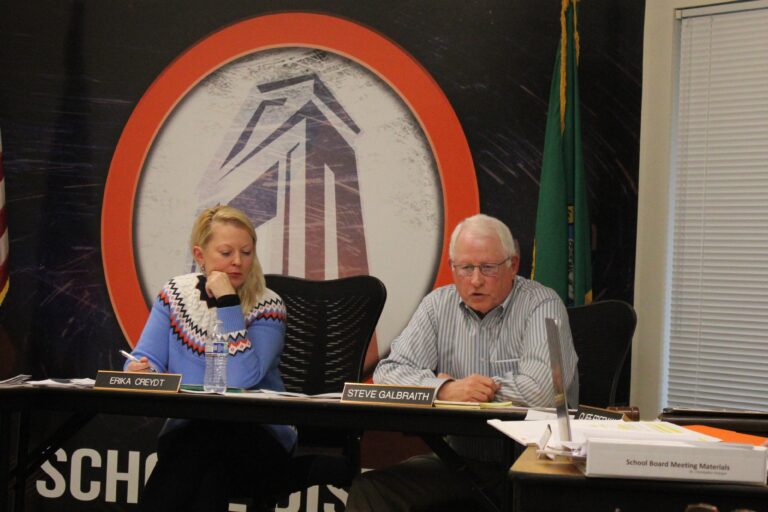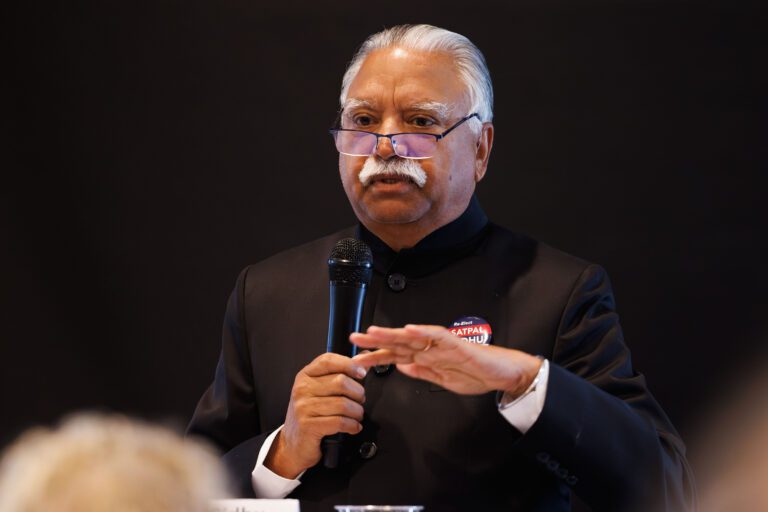While staff at the City of Bellingham deliberate unprecedented sewage rate hikes to fund the Post Point Wastewater Treatment Plant construction project, the price tag has nearly doubled.
The project will update the city’s failing wastewater management facilities, which have already operated long past their anticipated lifespan, to anaerobic digesters at a cost of at least $220 million, according to city staff members. But that $220 million price tag, calculated several years ago, is out of date, and hasn’t been revisited to reflect the current 8.5% inflation rate (down from June’s 40-year high of 9.1%), or additional construction costs.
A July report from Brown and Caldwell, the Seattle-based environmental consultant group working with the city on the project, estimates the final project cost will hit approximately $430.3 million, almost double the original anticipated price.
A budget provided to Cascadia Daily News by Bellingham Public Works Director Eric Johnston indicates estimated construction costs will sit around $365.5 million, about 85% of the estimated capital costs.
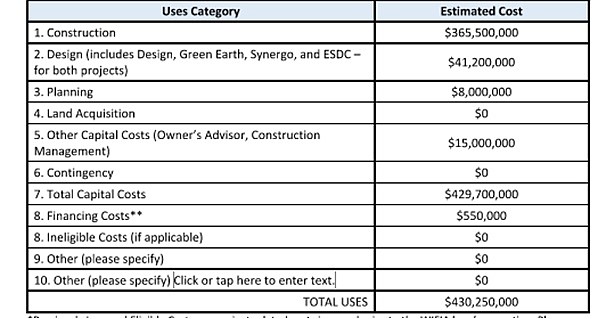 The City of Bellingham plans to use a WIFIA (Water Infrastructure Finance and Innovation Act) loan to fund up to 49% of the Post Point project costs and has estimated final project costs to hit around $430 million. (Chart courtesy of Eric Johnston/City of Bellingham)
The City of Bellingham plans to use a WIFIA (Water Infrastructure Finance and Innovation Act) loan to fund up to 49% of the Post Point project costs and has estimated final project costs to hit around $430 million. (Chart courtesy of Eric Johnston/City of Bellingham)
Some civic leaders, meanwhile, already are hinting at even higher costs. Bellingham City Council member Michael Lilliquist said he is skeptical of the $430 million budget, as it may not reflect total project costs.
“Over the next decade, we actually have capital expenses for Post Point [that] we expect to be over $1 billion,” Lilliquist said.
The final cost of the project is inexact, in part because designs and rate proposals aren’t finished.
“The price isn’t finalized because the design itself may be adjusted,” Lilliquist said. “It may change, looking for ways to either make it go quicker, which saves money, or simply make it cheaper.”
A cost breakdown from the report, titled “Facility Planning Report — Post Point Biosolids Project,” says only about half of the total project costs will go toward operations improvements, anaerobic digesters and biogas facilities. The remaining costs are related to site prep, upgrades to existing facilities and “general civil.”
Line items on the budget include $2.7 million for odor control, $1 million for landscape architecture and $918,500 for repaving roads and parking lots, among other expenses.
Concerns about the skyrocketing prices are weighing on city staff, particularly as they look to raise sewage rates on Bellingham residents to help fund the project. The council opted to move ahead with the anaerobic digester plan in April, offering little clarity on how the costs may impact city ratepayers.
Early reports indicated residents should expect to see rates hiked about 16% per year through 2029, with additional, smaller annual increases over the following decade to pay for an overhaul of the system. Now, those estimates may not be enough.
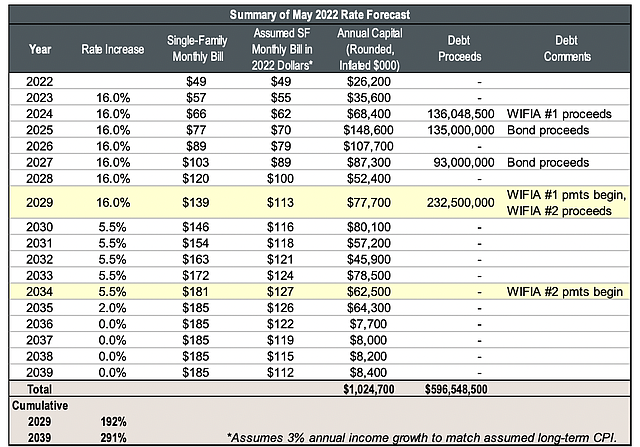 Bellingham residents could see significant rate hikes on their sewage bills over the next two decades. (Image courtesy of the FCS Group)
Bellingham residents could see significant rate hikes on their sewage bills over the next two decades. (Image courtesy of the FCS Group)
Lilliquist said the rate structure could be decided as early as September.
“These projects are getting more and more expensive, which will put a greater impact, a greater burden, onto our ratepayers, who will need to bear the cost of these types of [improvements],” Johnston told Bellingham City Council members during the Aug. 1 meeting. “That’s weighing heavily on the project team’s mind, and I know it’s weighing heavily on the mayor’s mind as well.”
The initial $220 million and resulting rate hike proposal carried its own sticker shock for Bellingham City Council members, who had to approve the project earlier this year.
“This is going to be a huge sticker shock for the consumer, and it’s going to be painful for a lot of people,” council member Lisa Anderson said in May. “I don’t know, in the history of Bellingham, if they’ve had such a substantial rate increase over, theoretically, a short period of time.”
Despite the high cost, Anderson said the city doesn’t have a choice at this point.
Other costs are contributing to the rising price, including a $700,000 consultation and community outreach effort, announced during the Aug. 1 council meeting.

